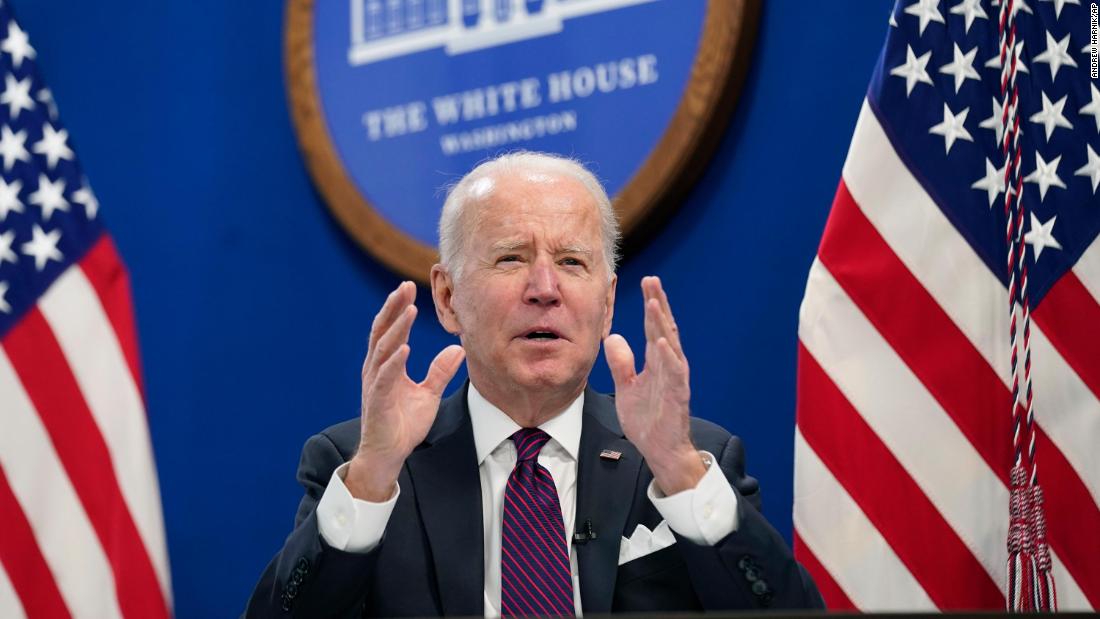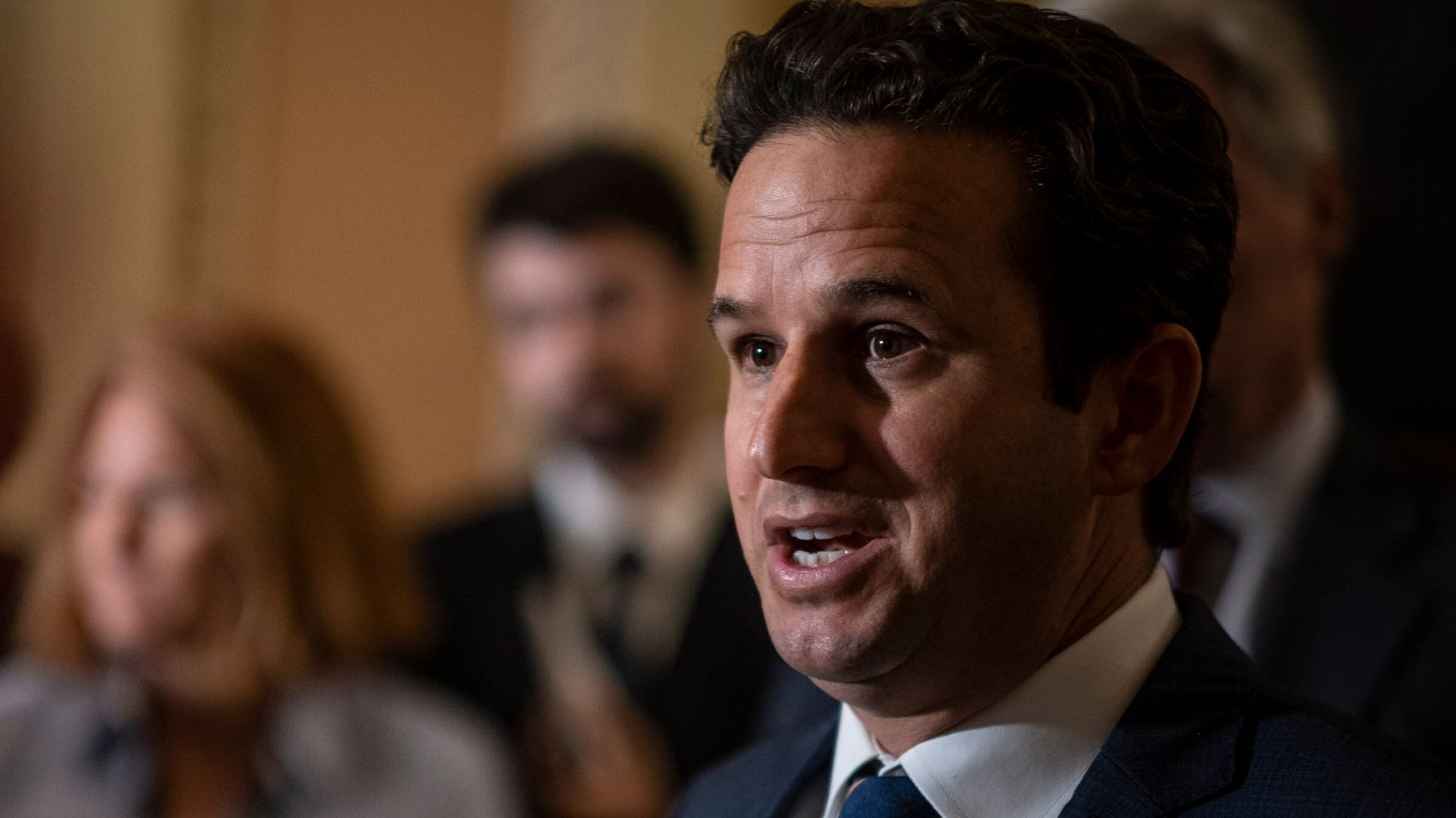CNN
President Joe Biden received a much-needed political opening on Wednesday. But neither he, nor anyone close to him, appeared ready to celebrate it.
Supreme Court Justice Stephen Breyer’s retirement plans were publicly revealed before the White House or the justice himself was expecting it, leading to a muted response from Biden and his aides. The White House — which had learned of Breyer’s plans last week, though the justice did not inform the President directly — had been preparing for the moment for more than a year. But a subdued reaction from Biden was indicative of something he has made clear for months: He won’t abide any pressure from his team, however subtle, on Breyer to step down.
“Let him make whatever statement he’s going to make,” the President said in the State Dining Room as a group of chief executives looked on. “And I’ll be happy to talk about it later.”
The awkward moment — with Biden remaining mum even as many Democrats were celebrating news that could provide him a badly needed political boost — reflected an announcement that had not come as many had planned, least of all the President.
Biden’s calculated silence over the past months has not stopped the process of selecting Breyer’s successor from quietly taking shape. Groundwork has been carefully laid for a process that will unfold over the coming weeks, which the President hopes will lead to a confirmed justice by spring.
Biden’s White House has created a judicial nomination machine during the President’s first year in office, vetting and selecting a raft of diverse candidates to fill open spots on the federal bench at a pace that outstrips most of Biden’s most recent predecessors. The President also has a deeply experienced player in a key role for the coming high-stakes process — his top adviser, chief of staff Ron Klain, has played a major part in nine different Supreme Court nominations over the last several decades.
The administration hopes to move fast once Breyer hands over the letter that will officially notify the President of his intention to retire. Biden and Breyer are expected to appear together at an event Thursday to make the decision formal.
After months of deference to the justice, with White House aides parsing interviews for clues on his intentions, the President is looking to chalk up a political win that could brighten his party’s dim political prospects in the fall — even if won’t change the ideological makeup of the high court.
“Anything that changes the subject is good news. It’s been a rough stretch for him. It is a chance for him both to fulfill a promise and do something that unifies his caucus and gives him a win,” said David Axelrod, a senior adviser in the Obama administration and a CNN senior political commentator.
“This is a propitious time to be talking about the Supreme Court. If the current court does as we expect and guts Roe vs. Wade in the spring, this could be a motivating factor for voters on the Democratic side, particularly women, particularly in the suburbs, which will be important. And having a stellar nominee who impresses joining the bench after June could be part of that mix.”
Biden likely to act quickly
The President is famously slow announcing many of his major decisions, with longtime advisers often explaining that he does not like to be rushed. But the Supreme Court nomination is one of the most consequential choices of his presidency, with such a compelling sense of urgency, officials believe he is likely to act far more swiftly than in other decisions he’s made since taking office.
While advisers to Biden say they do not believe he has a single pick in mind, they suspect he has narrowed his preferred choices from the list of five or six judges whose names have circulated in judicial and political circles.
“The President appreciates the urgency of this,” a longtime adviser said, “but the timing and the decision is his and his alone to make.”
Democrats outside the White House said they expected the nomination and confirmation process to track closely with tradition each step of the way, even if there’s a deliberate effort to quicken the pace.
The President has been thinking about a Supreme Court vacancy for nearly two years, since he declared at a presidential debate in February 2020 that he intended to select a Black woman, saying later: “It’s required that they have representation now. It’s long overdue.”
He first made the commitment in South Carolina, where Black voters make up a sizable portion of the electorate and which is a crucial battleground where his campaign was struggling to gain traction. It helped Biden secure key endorsements, including from House Majority Whip James Clyburn, a South Carolina Democrat. Biden went on to win the South Carolina primary, helping to lift his prospects on Super Tuesday.
During his presidential transition, the Supreme Court was a central part of the planning discussed between Biden, Klain and other top advisers. His longtime role on the Senate Judiciary Committee — and the fresh lesson from Justice Amy Coney Barrett’s confirmation — heightened his interest in the subject.
During transition meetings in Wilmington, Delaware, after the election, as his new administration was taking shape, there were recurring conversations about the Supreme Court, despite no signs of an immediate vacancy. The Barrett confirmation in the final weeks of the Trump presidency infuriated Biden, people familiar with the meetings said, and fueled his interest in filling a vacancy of his own.
Klain in the spotlight
Klain, a former Supreme Court clerk and chief counsel on the Judiciary Committee, has taken a keen interest in Biden’s efforts to put his stamp on the judiciary, the people said. At the Judiciary panel, he helped Biden shepherd nominations and manage hearings for Supreme Court nominee Clarence Thomas.
Later, when Klain was serving as an associate White House counsel, Justice Byron White asked Klain, his former clerk, to deliver his resignation letter to then-President Bill Clinton. Klain went on to play a role in the selection process for White’s successor, Ruth Bader Ginsburg. And he advised President Barack Obama on his Supreme Court elevations of then-federal appellate Judge Sonia Sotomayor in 2009 and then-US Solicitor General Elena Kagan in 2010 — Klain and Kagan had been students together at Harvard Law School.
Klain was also deeply involved when Breyer was a contender to replace White on the court when he retired in 1993. Klain interviewed Breyer from his hospital bed, where Breyer was recovering from injuries sustained during a bicycle accident. Because he had a punctured lung, Breyer could not fly to Washington for his lunch with Clinton and instead had to take a train, causing an indiscreet arrival for a usually highly secretive meeting.
This will be the ninth Supreme Court nomination in which Klain has been closely involved.
“You aren’t going to find anyone with more experience in this world than Klain,” said a Democrat who has dealt with the Biden White House on judicial nominations. “It doesn’t mean he’s running the show, but for all the experience their team has in the counsel’s office, there’s nobody who understands this — not just the process, but the importance of this moment — like Ron.”
If past is precedent, Biden will take his time interviewing possible candidates and hearing from allies who are pushing their own hopefuls. Aside from Biden and Klain, the White House is filled with staff intimately familiar with the process. The current White House counsel and national security adviser both served as Supreme Court clerks, and veterans of the Obama administration worked on the former President’s two nominations to the court.
By many accounts, US Court of Appeals for the District of Columbia Circuit Judge Ketanji Brown Jackson is a front-runner for the nomination. She has the qualities Biden says he wants, once served as an assistant federal public defender, and was recently vetted and confirmed for the lower court. She is also a former Breyer clerk and a relative by marriage to a prominent Republican — former House Speaker Paul Ryan.
Biden turns to his judicial nomination machine…



